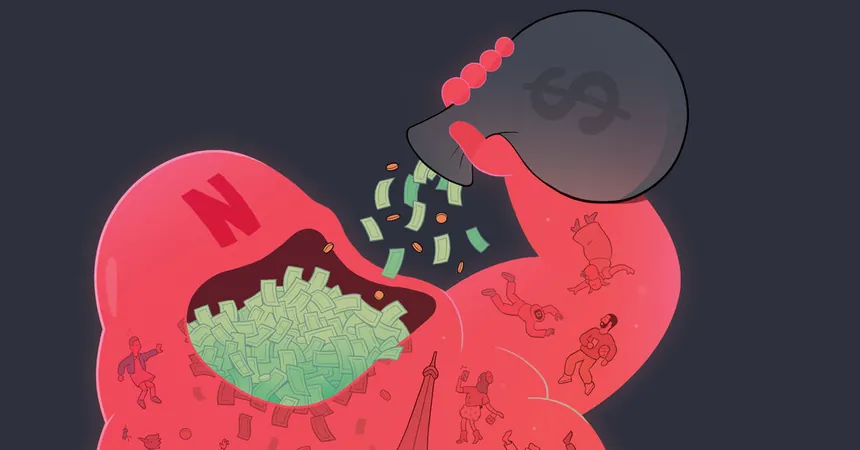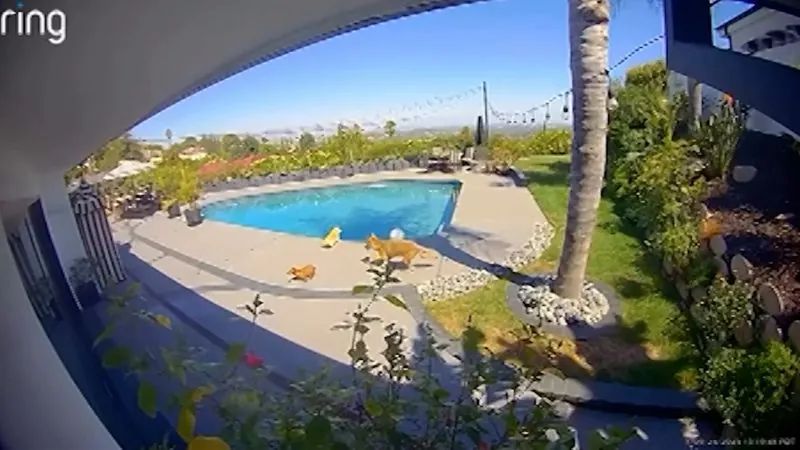
Navigating the Maze of Netflix’s Expanding Realm: How We Lost Ourselves in Endless Choices
2024-10-07
Author: Wei
Introduction
In the bustling world of streaming, few names echo as loudly as Netflix, a pioneer that transformed how we consume entertainment. Its expansive library can feel like a double-edged sword, offering us a treasure trove of options while simultaneously leaving us lost in its labyrinthine corridors.
Reimagining Richie Rich
Let's take a stroll down memory lane to discover the reimagined version of the classic character Richie Rich. In the whimsical Netflix series, Richie has emerged not as a lonely child grappling with his wealth but as a self-made trillionaire, residing in a mansion complete with an amusement park and even a robot maid. With quirky companions, including a friend played by Jenna Ortega, and an eccentric neighbor—a rapper named Bulldozah—the show captures a colorful narrative compared to the dark portrayal seen with Macaulay Culkin in the early '90s.
In the fourth episode, we meet an ambitious Richie as he grapples with creating a book report on "The Wizard of Oz." His attempts to jazz up the beloved classic spiral into chaos, as beloved characters morph into unexpected personas—Dorothy fancies herself as a Parisian fashionista while the Lion trades courage for coolness with a motorcycle. The grand production even ventures into absurd territories with time-traveling dinosaurs and villainous space robots, ultimately leading Richie to ponder the question: What defines a positive role model in today’s entertainment?
The Impact of Content Abundance
Yet, this whimsical narrative echoes a more profound concern about the entertainment landscape. What happens when a fresh player in content creation, backed by seemingly infinite resources, attempts to reshape storytelling? The release of "Richie Rich" in 2015 signaled Netflix’s early strides into original programming, a journey burgeoning with ambition and, significantly, substantial debt. Through strategic borrowing (totaling over $15 billion by 2019), Netflix constructed an impressive library with upwards of 16,000 titles.
For context, if one tried to watch every title on Netflix, it would take a staggering five and a half years of continuous viewing—a task not just daunting, but impossible. People can’t even begin to process the sheer volume of content, highlighted by recent attempts to release viewer data. For instance, "The Night Agent" topped the charts with over 812 million viewing hours, revealing not only popular success stories but also illustrating how easily some hidden gems can fall under the radar.
Cultural Shift and 'Mid TV'
As Netflix relentlessly churns out new series and films, it engenders an environment ripe for confusion—both for viewers trying to find their next favorite show and for creators attempting to gauge what audiences really want. This endless cycle of content begs the question: Are we witnessing a cultural shift, leading to the rise of “Mid TV”? This phenomenon describes shows that are good but may lack the impactful storytelling that once defined prestigious television. The distraction of countless offerings can diminish the perceived quality of any single title, even if it achieves popularity.
Algorithmic Curation and Viewer Experience
Consider Netflix's algorithm, which curates viewers’ selections, crafting personal experiences that often only show part of the broader library. This digitized curation process may also misguide viewers. A glance at Netflix's latest viewing stats may reveal an array of unfamiliar titles dominating the ranks—shows that, while popular, may not resonate with everyone’s tastes.
The Shift Towards Financial Sustainability
As the streaming giant evolves, it has begun to tighten its belt, prompted by economic realities. The introduction of an ad-supported tier reflects a strategic shift akin to the industry's past, demonstrating the complex interplay between content creation and financial sustainability. However, as the entertainment landscape transforms, promising shows like "Baby Reindeer" still thrive, illustrating that there remains a space for creativity amid the wave of algorithm-driven content.
Conclusion
Ultimately, Netflix represents the dual nature of modern entertainment: an abundance that dazzles yet disorients. As viewers and creators crave genuine connection and meaning, we must navigate this rich landscape carefully, lest we become mere specters haunting the hollow promises of endless choice. In this era of overstimulation and rapid content turnover, the quest for memorable storytelling continues, reminding us of the timeless narrative that binds us all. What might be our next favorite binge? Only time—and perhaps a well-timed recommendation—will tell.




 Brasil (PT)
Brasil (PT)
 Canada (EN)
Canada (EN)
 Chile (ES)
Chile (ES)
 España (ES)
España (ES)
 France (FR)
France (FR)
 Hong Kong (EN)
Hong Kong (EN)
 Italia (IT)
Italia (IT)
 日本 (JA)
日本 (JA)
 Magyarország (HU)
Magyarország (HU)
 Norge (NO)
Norge (NO)
 Polska (PL)
Polska (PL)
 Schweiz (DE)
Schweiz (DE)
 Singapore (EN)
Singapore (EN)
 Sverige (SV)
Sverige (SV)
 Suomi (FI)
Suomi (FI)
 Türkiye (TR)
Türkiye (TR)